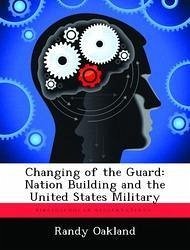This thesis examines the United States military's move away from the Weinberger-Powell Doctrine. It assesses the evolution of America's use-of-force doctrine by evaluating changes in post-Cold War national strategy documents and their context within the historical narrative. It further illuminates the relationship between the chairman of the Joint Chiefs of Staff and the president as a lens through which to evaluate the changing nature of America's civil-military relations. The analysis examines three time capsules: the end of the Cold War and Desert Storm, hegemony before 9/11, and hegemony after 9/11. The results of this analysis suggest the president's ill-defined role as commander-in-chief and America's emergence as a global hegemon allowed the increased application of military force in the conduct of foreign policy. Despite the intent of the Goldwater-Nichols legislation to enhance military advice to the president by strengthening the chairman's position, the evidence suggests the chairman's role in determining when and how to use force has declined significantly since a peak under the leadership of Colin Powell. The final section of the study highlights inputs into the trend toward a military co-opted by a strong executive and addresses ways the institution can ensure its future leaders retain the capacity for independent thought grounded in the history of warfare.








